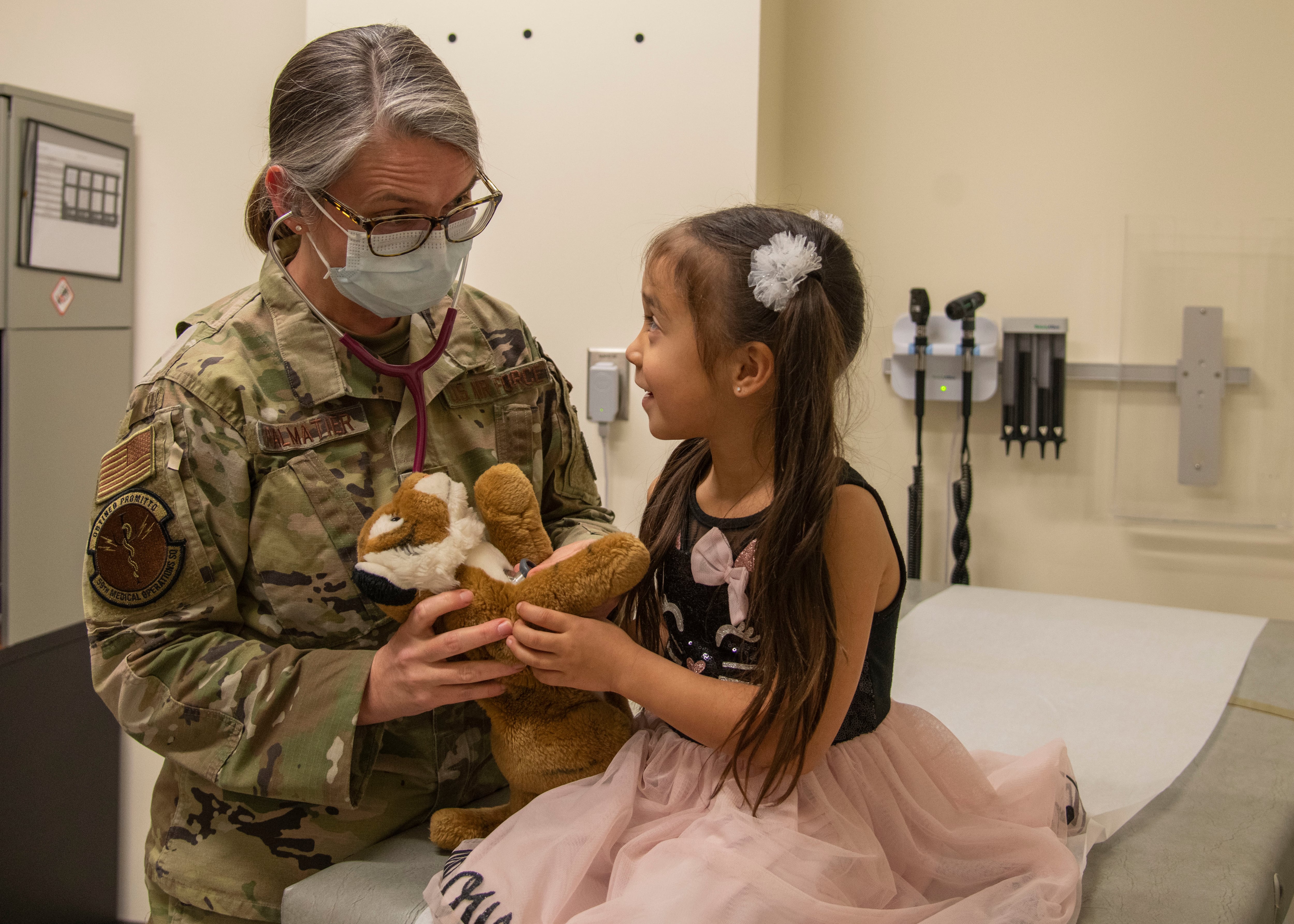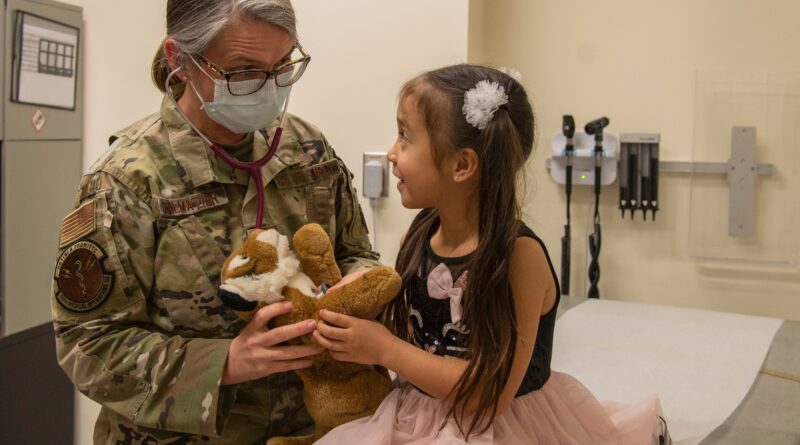What you need to know about Tricare costs and changes when the open period begins
It’s that time of year when you can make changes to your military maintenance plan.
Tricare’s open season continues through Dec. 10. Some Tricare beneficiaries are also eligible for the Federal Employees Dental and Vision Insurance Program, or FEDVIP. The program’s open season ends on December 9. It’s also time to enroll in the flexible care spending program now offered to active duty service members.
Be aware of other changes, such as additional cost increases, when deciding which plan is best for you. A new contractor, TriWest Healthcare Alliance, is taking over Tricare West Region on Jan. 1. The current contractor for the Eastern Region, Humana Military, remains the same.
Check the Humana network provider list or the TriWest provider list to see which health care providers are in the network.
The Tricare open period applies to those who are enrolled or eligible for Tricare Prime or Tricare Select. During this time, enrolled beneficiaries can make changes to their health plans — such as moving from Tricare Prime to Tricare Select, or from individual to family enrollment. If you are eligible for the Tricare plan but are not enrolled, now is the time to do so. Otherwise, you will have to wait until a qualifying life event, such as a birth or adoption, marriage, divorce, moving or changes to other health insurance.
Any changes you make during the open season will take effect on January 1st.
During this time, eligible Tricare beneficiaries who want to stay in their current plan can do so if they are still eligible.
But all beneficiaries in the Tricare West Region should contact the new contractor, TriWest, before the new contracts start on January 1, to make sure their contact information is up to date, and to transfer their information of payment if they pay. registration fees or premiums by credit card or bank transfer.
The new Western Region includes 26 states, as beneficiaries in six states have been transferred to the region from the Eastern Region under the new contracts. Those six states are Arkansas, Illinois, Louisiana, Oklahoma, Texas and Wisconsin.
The opening period does not apply to active members, or to Tricare for Life, or to the premium-based plans – Tricare Reserve Select, Tricare Retired Reserve and Tricare Young Adult. These premium based plans can be purchased at any time during the year. But Tricare Young Adults with Prime or Select options can change plans only during free enrollment or a qualifying life event.
To enroll in the plan, or make changes, eligible beneficiaries can call their local contractor, or download an enrollment form and mail it to a 2025 district contractor. Remember, if you live in the US you will not be able to use the Beneficiary Web Registration portal this year to make changes.
Call the Humane Society East at 800-444-5445.
For the Western District, call TriWest at 888-874-9378.
BE CAREFUL

Projects:
Tricare Prime is a health care system plan where you receive most of your care from a primary care provider, and are referred for specialty care. There is no deductible. Service personnel, their family members and temporary survivors do not pay registration fees or out-of-pocket costs for covered services, unless they receive emergency care without a referral, They use internet providers without permission, or use. a pharmacy without a military base. Retirees, their families and others pay enrollment fees and out-of-pocket costs for covered services other than preventive care.
Tricare Select is a preferred provider plan where you choose your authorized Tricare provider and you don’t need to be referred for multiple services. There are deductibles, co-payments and co-shares.
Costs are increasing
The cost of Tricare pharmacy benefits will remain the same until 2025.
In general, those paying out-of-pocket for health care under Tricare in 2024 will pay more in 2025, according to rate sheets recently released by the National Institutes of Health. For those who make co-pays for covered services such as primary care visits, intensive care visits and emergency room visits, other co-pays will increase by $1 to $3 when I visit.
Individual service members have no out-of-pocket costs. Family members may have costs, depending on the Tricare health plan they are enrolled in, their sponsor’s income and when the sponsor enters the workforce, the type of care they receive get it, and where they get it.
There is no charge for restricted safety visits.
Those who pay annual subscription fees will also see an increase. For example, retirees who joined the military before 2018 will pay $744 to enroll their family in Tricare Prime, an increase of $18 from $726 in 2024.
Annual premiums will increase for some, meaning families will pay more out-of-pocket before Tricare starts. For example, Tricare Select active-duty families whose service member is E4 and below and enlisted on or after January 1, 2018, will pay $128 out-of-pocket before Tricare starts , an increase of $3 compared to 2024.
According to the law, there are differences in some expenses depending on when the sponsor joined the military. Those who joined before January 1, 2018, are part of Group A, while those who joined on or after January 1, 2018, are part of Group B.
Cost of premium based plans
These costs, set by the Centers for Disease Control and Prevention, have continued to rise over the years. The biggest increase is in the Tricare Young Adult Prime option, with a 14% increase in monthly premiums. Those payments are increasing by $90, from $637 to $727 per month. This “will put the project out of reach for many young people and their families,” said Eileen Huck, deputy senior director of government relations for the National Military Family Association.
“The good news is that the cost of Tricare Young Adult Select is going up by a very small amount,” he said. The Tricare Young Adult Select premium is going up 8%, from $311 a month to $337. Tricare Young Adult Prime and Select plans are available for purchase by eligible primary dependents up to age 26. “We still think that young adults should be able to keep their Tricare coverage. up to 26 years at no additional cost,” he said.
The Tricare Young Adult program must be free of charge to the government, under the rules set by Congress when it was implemented in 2013. Thus, the full cost of the program’s payments are reflected in the fees charged to families. . Defense officials look at health care costs for the previous year’s program and calculate the costs.
Tricare Reserve Select and Tricare Retired Reserve monthly premiums are also increasing. For example, they are increasing by 4% for service members in the Tricare Reserve Select program for members only, and 7% for a member and family in the Reserve Select program. Those in the Tricare Retired Reserve program will pay an additional 8% in monthly premiums.
Tricare Reserve Select monthly premiums for a member only are $53.80, up 4% from $51.95 in 2024. For a member and family, the cost is $274.48, up 7% from $256.87 per month in 2024.
For Tricare Retired Reserve, member only, the monthly premium is $631.26, up 8% from $585.24 in 2024. Member and family, the cost is $1,513.04, up 8% from $1,406.22 in 2024.
Teeth
Active-duty families, National Guard and reserve service members — as well as active-duty Guard and reservists — are eligible for the Tricare Dental Program, which requires separate enrollment. Dental program fees dropped slightly in November, and remain the same until February 28, 2025.
Most retirees and their families are eligible for dental coverage under the Federal Employees Dental and Vision Insurance Program, or FEDVIP, which is administered by the Office of Personnel Management and also requires separate enrollment. For 2025, the Federal Employees Dental and Vision Insurance Program (FEDVIP) has twelve dental carriers.
Visit www.benefeds.com to register for FEDVIP and get more information.
Vision
Those in the military must be enrolled in a Tricare health plan to be eligible for FEDVIP vision coverage. Those eligible include active duty family members, retirees and their eligible family members, and members of the Selected Reserve and their families.
For 2025, FEDVIP has five vision carriers.
Visit www.benefeds.com to register for FEDVIP and get more information.
Care based on flexible spending
This is the second year military families can sign up for the new Dependent Care Flexible Spending Account, which allows families to set aside pre-tax money for dependent care expenses. Families sign up for these benefits through the Federal Flexible Spending Account Program (FSAFEDS) during the federal benefits open season, which currently runs through December 9.
These accounts help pay for childcare and other care expenses by providing tax savings. For help determining how to set up an account, and how much money to set aside, officials advise soldiers to take advantage of the Department of Defense’s free counseling and advice from management consultants. personal finance at most military bases, and tax advisors available year-round. DoD’s One Military Source. FSAFEDS also offers free benefits counseling.
Defense personnel will later be offered a health care convenience account, also through FSAFEDS, with a special enrollment period in 2025.
Karen has covered military families, quality of life and consumer issues for Military Times for more than 30 years, and is the co-author of the chapter on military family media in the book “Strategy of War to Support Military Families.” He previously worked for newspapers in Guam, Norfolk, Jacksonville, Fla., and Athens, Ga.
#Tricare #costs #open #period #begins

